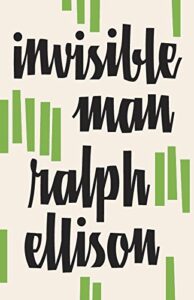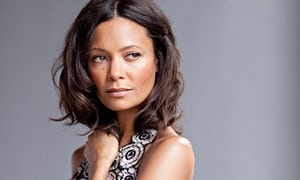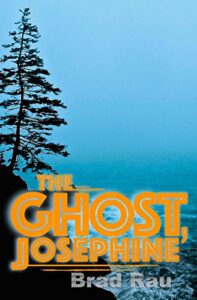Caveman at the End of the World was the winner in the Science Fiction category of the 2018 IndieReader Discovery Awards, where undiscovered talent meets people with the power to make a difference.
Following find an interview with author Brad Rau.
It took me a long time to land on Caveman at the End of the World as the title. As far as titles go, it’s a little wonky but I feel it expresses something of the off-kilter tone of the book and also touches on a few of the novel’s central themes. A lot of my failed attempts at titling the book ended up as chapter or section titles, so you can kinda see the evolution of my thinking as you read through. It was published September 15th, 2017
What’s the book’s first line?
The sun is a recurring metaphor, central to the protagonist’s character and it’s no mistake that the book begins with a mention of it: “As the blossoming day saturated the city in copper hues, Ella Pearson stood on the fire escape, waiting for the sun.”
What’s the book about? Give us the “pitch”.
Ella Pearson, a marketing executive struggling to balance her career ambitions and her somewhat selfish maternal aspirations, arrives home to find her apartment has been broken into. The intruder is still inside. Tiny and covered in hair, it’s apparent that he’s no threat but as she struggles to extract him from her life, she ends up falling down a rabbit hole of absurdity. Ultimately, she’s forced to examine what she wants, where she comes from and who she really is.
What inspired you to write the book? A particular person? An event?
This book has been a very long journey for me. The initial idea sprung up right around the time when the US was preparing to go to war in Iraq. After the US went to the UN with our evidence of WMD, the French were very critical of our conclusions, their opposition prompting the absurd renaming of a certain fried delicacy in the congressional cafeteria to “Freedom Fries.” Even in my mid-twenties that response seemed so outlandishly childish. It got me thinking about how that ‘us vs. them’ mentality can lead people down the path of tribalism and it got me thinking about our historical willingness to dehumanize one another. It’s been a long road from that initial spark of an idea to the final product but that question about what makes someone human and who gets to decide is still central to the novel.
What’s the main reason someone should really read this book?
While that question might be best answered by reviewers, I will say that while the underlying structure of the novel is built on a philosophical question, the book works primarily (as my wife reminds me when my long winded explanations peter out) as an adventure story. There’s a lot of action and humor and suspense and an uneasy tide of weirdness constantly shifting beneath the surface of things.
What’s the most distinctive thing about the main character? Who-real or fictional-would you say the character reminds you of?
I’m lucky to have grown up in the presence of countless strong women. My mother, my aunts, my grandmothers, my sister and sisters-in-law (not to mention my wife) are all incredibly resilient women, and my experiences with them helped shape my depiction of Ella Pearson. I think more than anyone, Ella reminds me of my sister. It’s her voice I hear in my head when Ella rails against the injustices heaped upon her. She’s passionate and ferocious, willful, decisive and blunt.
If they made your book into a movie, who would you like to see play the main character(s)?
Maybe Thandie Newton. I’ve liked her since Run, Fat Boy, Run.
When did you first decide to become an author?
In fifth grade I read Stephen King’s The Shining and it changed my world. I had no idea reading could feel so dangerous. I remember, shortly after finishing it, my mother driving me home from school. I told her I was gonna become a novelist. I didn’t catch it, but it makes me chuckle now to imagine the deep eye rolling my sudden assertion must have prompted; before The Shining, I’d never had any interest in books at all.
Is this the first book you’ve written?
This is my second published novel. My first novel, The Ghost, Josephine, was also well received and that book was preceded by a long line of manuscripts that got turned down by agents across the land—probably for very good reasons.
What do you do for work when you’re not writing?
Odd jobs fill in the gaps. Right now I’m working as a landscaper, but that will probably change in the next few months unless this book takes off—I’ll have to find something less seasonal.
How much time do you generally spend on your writing?
I’m always engaged in being a writer on some level or another. It’s wound right into my fabric. When I see a sunset, I always catch myself trying to build phrases to describe it. Clouds too. I like the notion that I might someday be able to express the particular beauty of something as nebulous as that, if I keep practicing. Landscaping is really perfect for me right now because it’s just mindless enough so that I can spend nearly the whole day mulling over projects I either have in the works or am planning out for the future, or just concocting phrases to describe pretty stuff I come across.
What’s the best and the hardest part of being an indie?
The best thing is the control. While I have friends who help me with editorial suggestions, there is no one holding purse strings and saying “it must be done this way.” That level of control allows me to extend my vision beyond the pages to the entire package of the book. Graphic design, layout and typesetting are all under my control. The hardest part? Marketing. That’s a task I’d gladly pass along. As with a lot of writers, I’m sure, self-promotion is definitely my weakness. It usually involves a lot of unsolicited apologies: “Sorry I’m taking up your time…” “Are you sure you wanna hear about this…” That sort of thing.
What’s a great piece of advice that you can share with fellow indie authors?
Don’t take advice from forty-year-old self-published authors who have to take odd jobs to make ends meet. I suspect someone like that has made some questionable life decisions.
Would you go traditional if a publisher came calling? If so, why?
That would be a difficult choice. I grew up in a time when self publishing was highly stigmatized: if you couldn’t hack it, you self published and self publishing was considered a very specific kind of failure. I’ve had a hard time coming to terms with my own prejudices about it and in some ways I still harbor them. However, now that I’ve gotten so used to having it my way in every aspect of publication, I feel it would be hard to let that go. I really like typesetting, it turns out. That said, for the first fruitless two decades of my writing career, it was always my goal to get picked up by a big publishing house. Those kinds of dreams are resilient.
Is there something in particular that motivates you?
In the end, I just like writing. Storytelling in novel form is so central to my sense of self I think I’d feel like half a person without it. I get very grumpy if too long passes and I haven’t written anything. And too long isn’t very long at all.

Probably Graham Greene. He had such a distinctive style and approach, but it never hemmed in his writing. He could do thrillers, crime novels and spy novels, romance and humor and they all read in his voice.
Which book do you wish you could have written?
Invisible Man by Ralph Ellison. There are a number of very obvious reasons why I am unqualified to have written that book, but in my mind it is the ideal of the Great American Novel. He does so much in those pages—satire, surrealism, epic plotting that never feels obvious or transparent—but all of it works toward fulfilling his thematic goals. The fact that the book has political and philosophical aims never distracts from the fact that it is a hugely entertaining, affecting and enthralling read.



